
A few days ago, I may have raised some eyebrows by placing a relatively obscure anime episode as my favorite TV episode of all time over several other acclaimed episodes, such as Breaking Bad's "Ozymandias". Today, I'll be reviewing Assassination Classroom (Japanese name: Ansatsu Kyoushitsu), a series which I have just finished watching for the second time.
I have to admit, the premise of this show is insanely ridiculous. However, I'll try my very best to explain it without being dismissed as a retard. The show is about a creature who looks like a yellow octopus, who blows up 70% of the moon and plans to do the same to the Earth in a year's time. However, insisting that "that would be no fun", he decides to teach Class 3-E in Kunugigaoka Junior High, a prestigious prep school where students are discriminated against for their grades. Oh, and I forgot to mention: this yellow octopus can move at a speed of Mach 20 (20 times the speed of sound in dry air), making him virtually impossible to kill, at first.
Surprisingly enough, this premise somehow works. The octopus, later named Korosensei (a pun on the Japanese word for unkillable, korosenai and sensei, meaning teacher) is, in my opinion, one of the most entertaining characters you'll ever see. Some reasons the series works as wonderfully well as it does include:
Korosensei

This show would have never worked if the yellow octopus creature named Korosensei was an intense, menacing Big Bad. However, that is not a problem at all: from the very second he appears, he's a delight, casually taking attendance while students shoot at him with special bullets that are specially designed for him. One big conflict on the students' parts is that he is, well the best damn teacher they've ever had; he can create individual clones using his amazing speed, teaching each student in a method they'll understand best, and he miraculously raises their grades. He also goes to extreme lengths just to impart wisdom on his students (like going to a baseball game in New York, to advise a student named Sugino who'd given up on his dream). However, his biggest selling point is that he is absolutely hilarious; despite being someone who's nigh impossible to kill, he freaks out extremely easily, and it's always funny. For example:
http://www.youtube.com/v/isu_u0TqSIo?version=3&start=0&end=120&autoplay=0&hl=en_US&rel=0
However, I do believe his very best moments are the speeches he gives when he talks to his students; he has a genuine, heartwarming care for them. In fact, the only time he remotely seems like the "monster who destroyed the moon" is when any of his students are in danger. A lot of credit for the brilliance of this character has to go to Jun Fukuyama; his manic performance creates the perfect tone, and he is amazing throughout the entire series, whether he has to act like a badass, be a hilarious idiot who screws up constantly, or just be the outstanding teacher he always is. I think the best praise I can possibly give Korosensei is that I really wish that I had, or will have a teacher like him. Oh, and then there's his iconic laugh:
https://www.youtube.com/watch?v=4ZUlv3lCYFU
Handles a Large Cast of Characters Incredibly Well

From the very beginning, this show had 30-plus characters counting just the students and their three teachers, due to the school environment. Many would think that this would result in a majority becoming caricatures or stereotypes, with only one or two being actually developed. However, that could not be further from the truth; each character is indeed distinct and unique, and while everyone does not get a limelight episode for character development, each of them does get a moment or two to shine. What's quite amazing is that in the backdrop of this great cast of characters, the main student trio of Nagisa Shiota, Karma Akabane, and Kaede Kayano can often be relegated to the background. Each person, as quite befitting for the assassination classroom, has their own role to play, and as time goes on, plays it incredibly well.
Compelling Character Arcs

Also, over the course of time, the characters are given some really well-handled character development. For example, Ryoma Terasaka, the class bully, goes from an aloof idiot who only cares about killing Korosensei, to a rather inspirational, well, idiot who gives some of the most rousing speeches in the series. Similarly, Karma Akabane goes from a sadistic arrogant genius to a person who genuinely believes in hard work and humility (although the sadism is expectedly still there), after going from 4th to 13th place in the first term final exams. In my opinion though, the character who develops the most is Korosensei, and in fact, I believe, he phrased it best: "How can I teach anyone if I myself didn't learn and grow every day?".
A Well-Paced Coming of Age Story
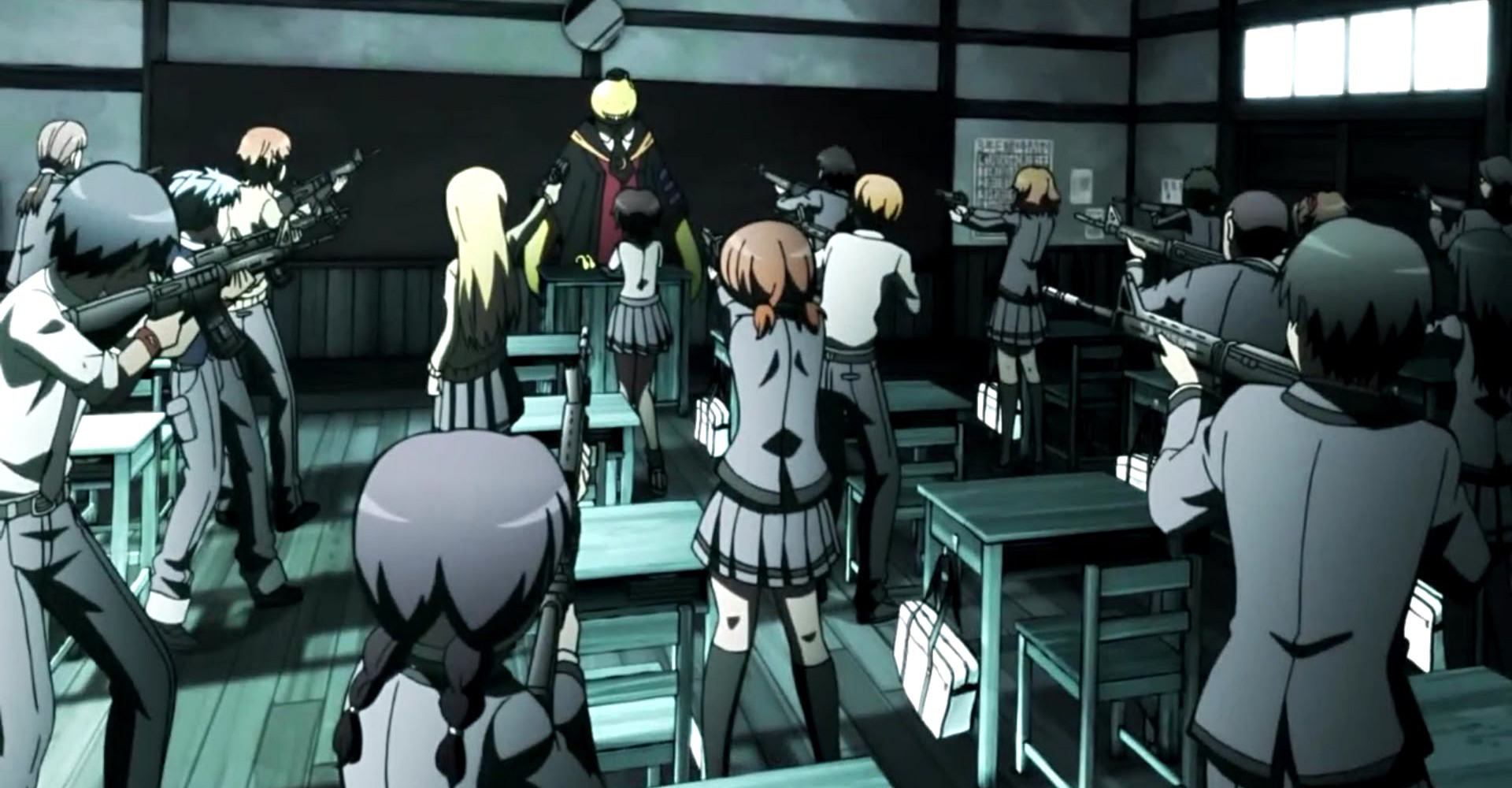
In spite of what its premise might indicate to some, Assassination Classroom is really more of a coming of age story, with a lot of comedy, and poignant life lessons. You learn to care and empathise with these students and these teachers; they go from misfits with extremely low self-esteem, to awesome assassins who also get better at their studies, and become good people in general. Koro Sensei is the one who gives most of these life lessons; whether it be to his students or a sniper, or his initially apathetic colleagues Karasuma and Irina (who's given a hilarious nickname which I will not spoil), he never gives up a chance to teach someone. What's miraculous is that the show never feels like it hammers its lessons home; it is conveyed in a tone that feels more natural than sentimental. In other words, we see a depiction of how awesome and productive a school environment can actually be, and how powerful the bond between a teacher and a student can be.
Brilliantly Natural Tonal Shifts

Just like its main character (or perhaps, because of him), Assassination Classroom changes tones and emotions in a heartbeat. A sly comedic moment may become an inspirational life lesson for the students or it may simply be the set-up for the next dramatic story arc. Unbelievably, this show is one of the few I've seen which completely earns the tonal shifts, and never makes it feel disjointed or meaningless, although it possibly could have been at any point. Specifically speaking, the first season is rather light (although it ends with an incredible dramatic arc), and it is mostly very comedic and entertaining. Midway through the second and final season the show gradually becomes darker in tone, as some truths are revealed which are just as shocking to the viewer as it is to the characters. And then there's the ending; I've already revealed that the final two episodes of this show are among my favorite episodes of all time, and seriously speaking, the finale is one of the most satisfying ever. This show handles the changes in tone exceptionally well, and it's one of the biggest reasons why this show is one of my favorites of all time.
Three Dimensional Antagonists
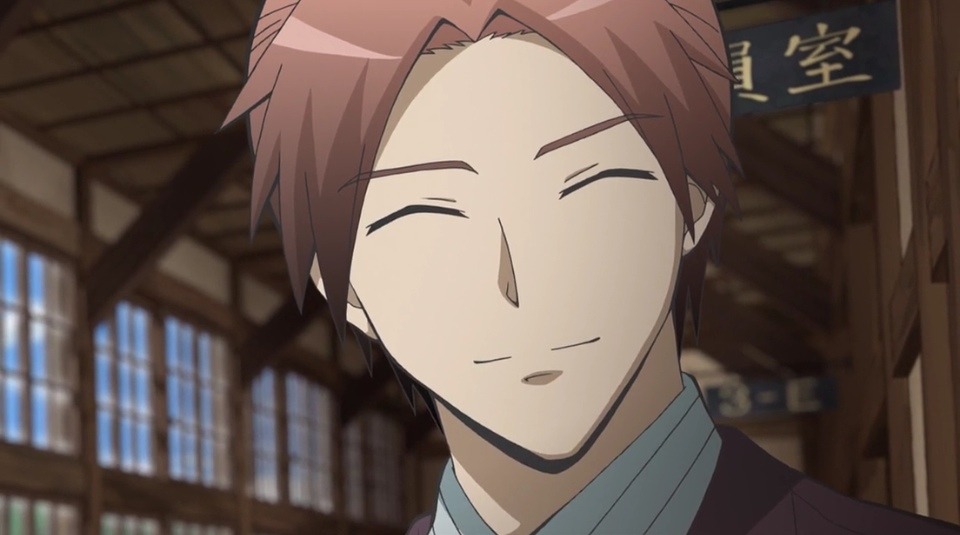
Unlike most anime, which seem determined to depict their villains as two-dimensional, heartless and irredeemable bastards, Assassination Classroom circumvents this problem by always showing and giving reasons for how these people became this way. It actually succeeds and makes the villains sympathetic in more ways than one. For example, although it is unanimously agreed that the students of the main campus are discriminating assholes due to their attitude towards Class 3-E, the show makes the point of explaining that the constant pressure and superiority complex that is enforced by the Principal, Gakuho Asano (pictured above) is the prime reason behind their attitude. The show actually doesn't romanticise assassins; they realistically show that assassins are not pawns who will kill any and everyone for money, and are people with real flaws and their own code. The fact that the show gives a lot of depth to its antagonists is one of the best reasons why it's rewatchable, and why finishing the show is such a rewarding experience to the viewer.
Verdict

As I've stated in the reasons above, this show is well worth your time. I haven't even delved into the other reasons why you should watch this show, such as the brilliant animation, the entertaining fight scenes, or the fantastic. The first seasons is brilliant, with every episode being entertaining and compelling in one way or the other, and you're guaranteed to laugh your guts out. The second season is just as amazing, but I do believe it hits the more complex and higher emotional heights. Even if anime isn't your thing (which was practically the case for me before I watched this show and Attack on Titan, another masterpiece), I do recommend this show wholeheartedly. It is one of the best shows I've ever seen, hands down.
Score for each season: 5/5 (First Season)
5/5 (Second Season)
Overall score for the show: 10/10
Where to watch it: http://watchac2.com (I recommend the original Japanese with English subtitles, simply because of the fact that it sounds more natural and better than the English dub, and has better performances by the voice cast)
http://www.youtube.com/v/isu_u0TqSIo?version=3&start=0&end=120&autoplay=0&hl=en_US&rel=0
However, I do believe his very best moments are the speeches he gives when he talks to his students; he has a genuine, heartwarming care for them. In fact, the only time he remotely seems like the "monster who destroyed the moon" is when any of his students are in danger. A lot of credit for the brilliance of this character has to go to Jun Fukuyama; his manic performance creates the perfect tone, and he is amazing throughout the entire series, whether he has to act like a badass, be a hilarious idiot who screws up constantly, or just be the outstanding teacher he always is. I think the best praise I can possibly give Korosensei is that I really wish that I had, or will have a teacher like him. Oh, and then there's his iconic laugh:
https://www.youtube.com/watch?v=4ZUlv3lCYFU
Handles a Large Cast of Characters Incredibly Well

From the very beginning, this show had 30-plus characters counting just the students and their three teachers, due to the school environment. Many would think that this would result in a majority becoming caricatures or stereotypes, with only one or two being actually developed. However, that could not be further from the truth; each character is indeed distinct and unique, and while everyone does not get a limelight episode for character development, each of them does get a moment or two to shine. What's quite amazing is that in the backdrop of this great cast of characters, the main student trio of Nagisa Shiota, Karma Akabane, and Kaede Kayano can often be relegated to the background. Each person, as quite befitting for the assassination classroom, has their own role to play, and as time goes on, plays it incredibly well.
Compelling Character Arcs

Also, over the course of time, the characters are given some really well-handled character development. For example, Ryoma Terasaka, the class bully, goes from an aloof idiot who only cares about killing Korosensei, to a rather inspirational, well, idiot who gives some of the most rousing speeches in the series. Similarly, Karma Akabane goes from a sadistic arrogant genius to a person who genuinely believes in hard work and humility (although the sadism is expectedly still there), after going from 4th to 13th place in the first term final exams. In my opinion though, the character who develops the most is Korosensei, and in fact, I believe, he phrased it best: "How can I teach anyone if I myself didn't learn and grow every day?".
A Well-Paced Coming of Age Story

In spite of what its premise might indicate to some, Assassination Classroom is really more of a coming of age story, with a lot of comedy, and poignant life lessons. You learn to care and empathise with these students and these teachers; they go from misfits with extremely low self-esteem, to awesome assassins who also get better at their studies, and become good people in general. Koro Sensei is the one who gives most of these life lessons; whether it be to his students or a sniper, or his initially apathetic colleagues Karasuma and Irina (who's given a hilarious nickname which I will not spoil), he never gives up a chance to teach someone. What's miraculous is that the show never feels like it hammers its lessons home; it is conveyed in a tone that feels more natural than sentimental. In other words, we see a depiction of how awesome and productive a school environment can actually be, and how powerful the bond between a teacher and a student can be.
Brilliantly Natural Tonal Shifts

Just like its main character (or perhaps, because of him), Assassination Classroom changes tones and emotions in a heartbeat. A sly comedic moment may become an inspirational life lesson for the students or it may simply be the set-up for the next dramatic story arc. Unbelievably, this show is one of the few I've seen which completely earns the tonal shifts, and never makes it feel disjointed or meaningless, although it possibly could have been at any point. Specifically speaking, the first season is rather light (although it ends with an incredible dramatic arc), and it is mostly very comedic and entertaining. Midway through the second and final season the show gradually becomes darker in tone, as some truths are revealed which are just as shocking to the viewer as it is to the characters. And then there's the ending; I've already revealed that the final two episodes of this show are among my favorite episodes of all time, and seriously speaking, the finale is one of the most satisfying ever. This show handles the changes in tone exceptionally well, and it's one of the biggest reasons why this show is one of my favorites of all time.
Three Dimensional Antagonists

Unlike most anime, which seem determined to depict their villains as two-dimensional, heartless and irredeemable bastards, Assassination Classroom circumvents this problem by always showing and giving reasons for how these people became this way. It actually succeeds and makes the villains sympathetic in more ways than one. For example, although it is unanimously agreed that the students of the main campus are discriminating assholes due to their attitude towards Class 3-E, the show makes the point of explaining that the constant pressure and superiority complex that is enforced by the Principal, Gakuho Asano (pictured above) is the prime reason behind their attitude. The show actually doesn't romanticise assassins; they realistically show that assassins are not pawns who will kill any and everyone for money, and are people with real flaws and their own code. The fact that the show gives a lot of depth to its antagonists is one of the best reasons why it's rewatchable, and why finishing the show is such a rewarding experience to the viewer.
Verdict

As I've stated in the reasons above, this show is well worth your time. I haven't even delved into the other reasons why you should watch this show, such as the brilliant animation, the entertaining fight scenes, or the fantastic. The first seasons is brilliant, with every episode being entertaining and compelling in one way or the other, and you're guaranteed to laugh your guts out. The second season is just as amazing, but I do believe it hits the more complex and higher emotional heights. Even if anime isn't your thing (which was practically the case for me before I watched this show and Attack on Titan, another masterpiece), I do recommend this show wholeheartedly. It is one of the best shows I've ever seen, hands down.
Score for each season: 5/5 (First Season)
5/5 (Second Season)
Overall score for the show: 10/10
Where to watch it: http://watchac2.com (I recommend the original Japanese with English subtitles, simply because of the fact that it sounds more natural and better than the English dub, and has better performances by the voice cast)

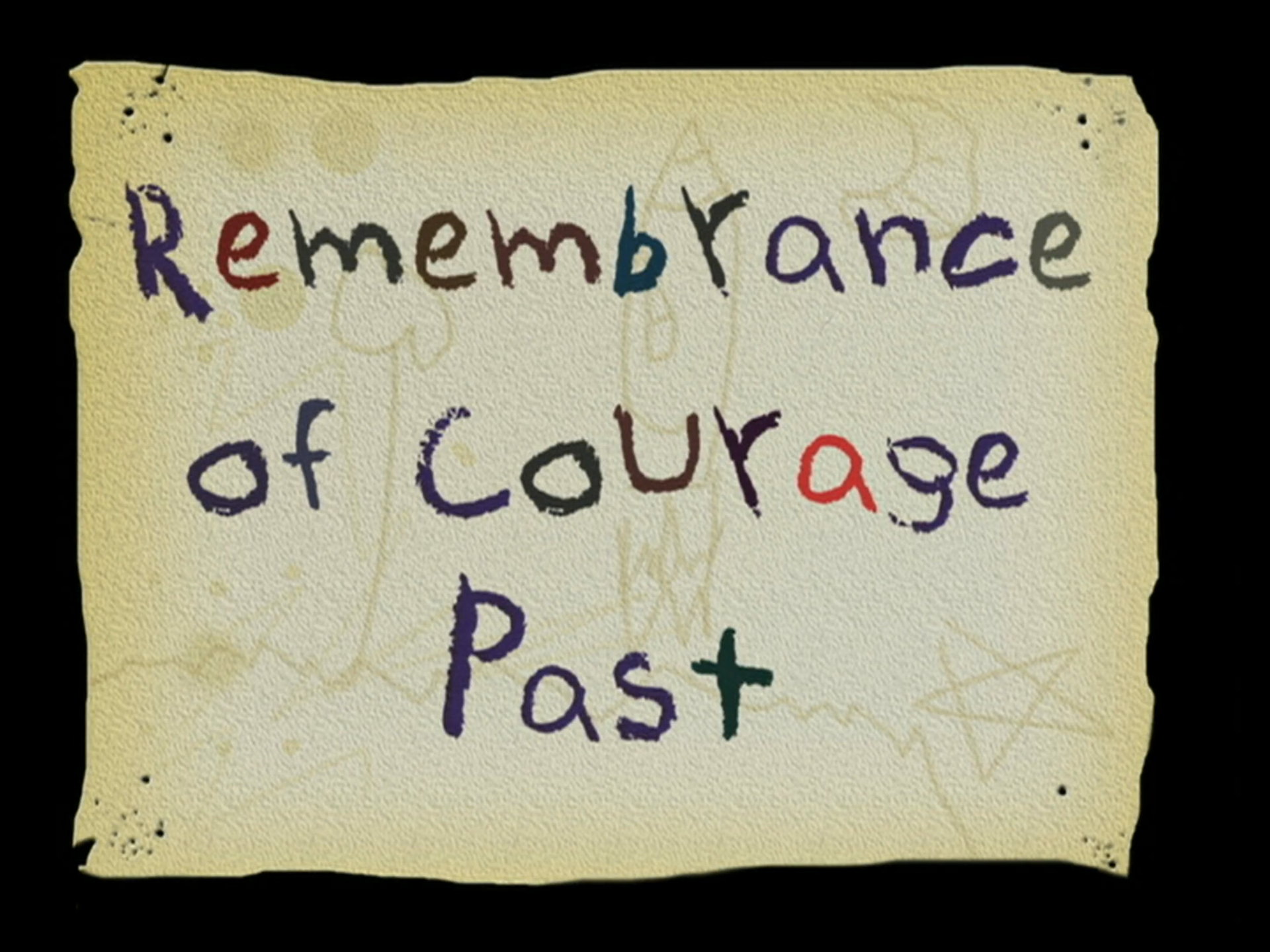





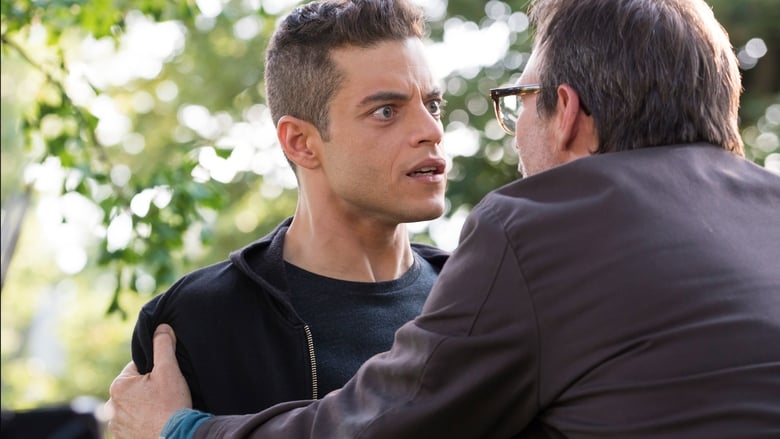
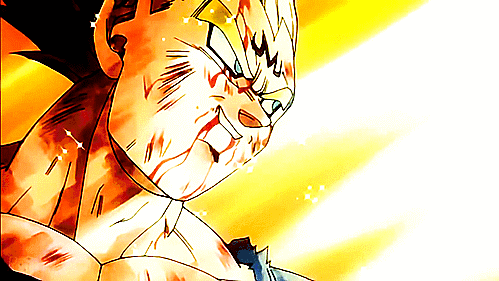

 .
.